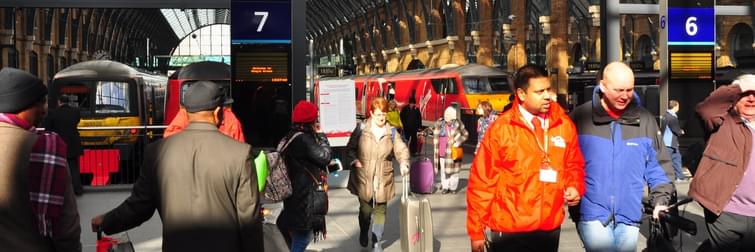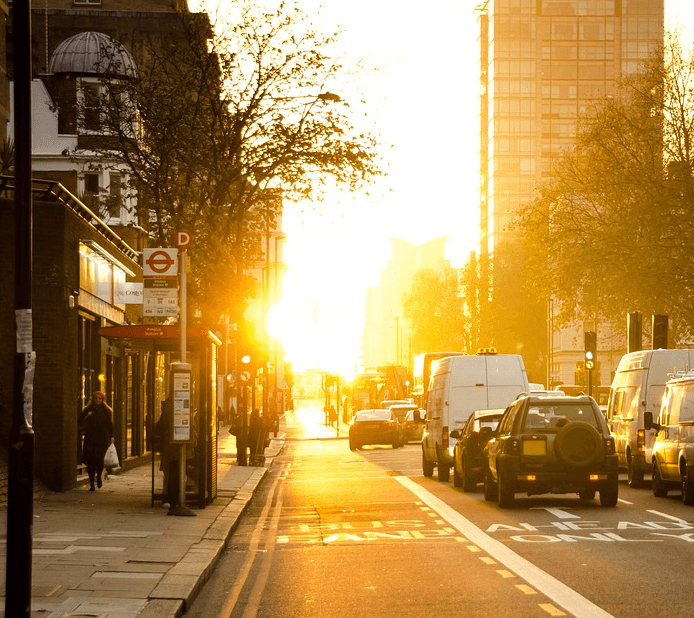
blog: Has COVID-19 permanently changed the way we travel?
Friday 17th April 2020
In a matter of a few week COVID-19 has drastically changed the way we go about our daily lives and whilst the enforced lockdown can feel like a rather negative and depressing time there are a number of positives that can be taken from the experience too. This blog offers an early view of the potential opportunities (and challenges) facing smarter travel practitioners in building on the travel behaviour changes people have recently made with a view to sustaining them in the longer term.
Sustaining the reduction in trips to work
According to a recent story in The Guardian, road travel has decreased to levels not seen since 1955, back when there were no motorways and barely anybody owned a car. All forms of travel have dropped in urban areas with walking, cycling and car and van journeys all down by approximately three quarters and bus numbers falling by 60%.
In light of this enforced travel behaviour change, some experts are suggesting that people may continue to work from home on more frequently as it has become a more acceptable option from the perspective of both employer and employee. If this can be further incentivised and encouraged, it represents an obvious opportunity for planners to effect a change that could lead to reduced motorised congestion and improved air quality in the longer term. The critical point for supporting this significant change in behaviour will be at a time when the lockdown is fully relaxed and people return to their usual working patterns, representing an opportunity for local councils to centre their climate change campaigns around this.
Supporting the shift to cycling
Interestingly, although cyclist numbers have fallen during the lockdown, they have decreased at a slower rate compared to users of other modes, indicating a switch to cycling as the preferred mode of transport for some people. There is therefore an opportunity to try to ‘lock-in’ this shift experienced over recent months to try to convert this experimental behaviour to longer term adoption. Other countries have attempted to do just that. In Bogota, Colombia, a network of emergency bikeways were set up in the early stages of the lockdown in order to support cyclists. Similarly, in Berlin, Germany, two temporary bike lanes have been set up and bicycle repair shops/dealers remain open to support resilient sustainable mobility.
However, with this notion comes many challenges, including perceived safety issues and it remains to be seen whether local authorities in the UK will embrace the opportunity for reallocating road space in the longer term. Some have suggested junctions could be redesigned now while roads are quieter, but this raises questions and concerns over the necessity of the travel of highway construction workers.
Maintaining smarter travel choices in light of plunging petrol prices
During the COVID-19 outbreak, drivers have noted a drop in petrol prices to less than £1 per litre in some areas of the country over recent weeks. While the reason for this price drop can be linked to demand and ongoing arguments between the Organisation of the Petroleum Exporting Countries (OPEC), the real question is, how long will prices stay so low and what will be the impact?
Cars are already viewed as a precious asset to many people, and cheaper petrol prices add to the perceived low cost of motoring in comparison to other more sustainable options. With the general public also now attuned to social distancing and likely to become more concerned about travelling on tightly packed buses and trains, will people revert to their own four wheels?
This will perhaps be the critical question facing the smarter travel industry as we move past the Covid-19 epidemic and the reason for a redoubling of all efforts in planning for a longer term future until the point where funding for sustainable transport options reaches levels even approaching those spent on building new roads.
Some encouragement in this respect can be taken from the release of a new plan to “decarbonize” transport issued by the Department for Transport in March, with the Secretary of State for Transport, Grant Shapps, stating that “Public transport and active travel will be the natural first choice for our daily activities [in the future]” and that "we will use our cars less.”
However, this is hard to square with the road-building plans announced by the UK government in the same month.

For more information on the support we can offer please visit the Get In Touch page.
